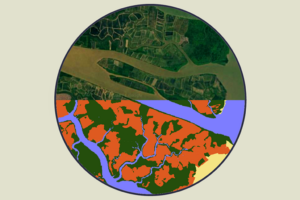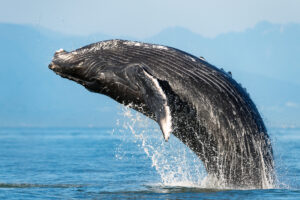There are HEROs among us here at Clark University. They may not be able to leap tall buildings in a single bound, but they are developing remarkable powers in environmental research.
For more than a decade, the Human-Environment Regional Observatory (HERO) program at Clark University has provided a unique undergraduate research experience, focusing on and spanning social, ecological, and mapping sciences. The common intellectual thread among these HERO domains is the study of land-use and land-cover change, long a topic of Clark research expertise.
Undergraduates selected each year to become HERO Fellows conduct hands-on research under the mentorship of Clark faculty and master’s and Ph.D. students in the lab and in the field, joining what Professor Colin Polsky, director of the HERO program, calls a “community of effective practice.”
They also enjoy the opportunity—relatively rare for undergraduates—to present their professional-level science in scholarly publications and at academic conferences across the country, including the annual meeting of the American Association of Geographers, which will be held next in New York City (Feb. 24-28, 2012).
The 2011 HERO Fellows from Clark include Joseph Krahe ’12, Martha Ziemer ’13, Andrew Shatz ’12, Matthew Manley ’13 and Lauren Ziemer ’13.
This year, Manley received the 2011-12 John O’Connor Award for Excellence in Environmental Research. This award is named for the late Clark University Trustee John O’Connor (Class of ’78) who was a prominent Massachusetts environmentalist and community activist.
Krahe and Martha Ziemer were selected as HERO-Mosakowski Institute Fellows for Sustainability Science, an honor sponsored by the Mosakowski Institute for Public Enterprise at Clark, which is dedicated to improving the effectiveness of government and other institutions in addressing social concerns through the successful mobilization of use-inspired research. Each year, HERO faculty members integrate the students into the faculty’s externally-funded research activities.
The success of these activities has translated into a successful three-year, $360,000 grant proposal to the U.S. National Science Foundation’s Research Experiences for Undergraduates Site (REU Site) program, which provided resources to further develop the program, including opening the program to students from around the country.
Joining Clark’s 2011 HERO team, from among approximately one hundred applicants, are: Philip Sparks ’13 (University of Arizona), Beth Anne Martin ’11 (Arizona State University); Corinna Keeler ’12 (Grinnell College), Jacqueline Gushue ’12 (Boston University), Maya Lim ’12 (University of Chicago), Clara Wool ’12 (University of Massachusetts) and Ariel Walcutt ’13 (University of Massachusetts/Commonwealth College).
Each summer, the HERO-REU students embark on a demanding eight-week curriculum. The goal for every HERO fellow is to carry out a year-long research project, and to have that culminate in a written, oral and poster presentation.
On Nov. 2, the HERO Fellows presented their research findings at the annual Fall Fest in the Academic Commons, Clark’s campus-wide academic poster showcase. They also presented publicly in late July, before an audience at Jefferson 320.
Their topics include analyses of suburban lawns and water management, suburban sprawl and mapping flood plain areas; and application of remote sensing data and technology to monitor large-area forest cover change in New England.
Along with Polsky, who is Clark’s Associate Dean for Undergraduate Research & Active Pedagogy and associate professor of Geography, are core program faculty members R. Gilmore Pontius Jr., associate professor of Geography and International Development, Community and Environment (IDCE); John Rogan, associate professor of Geography; Deb Martin, associate professor of Geography, and Verna DeLauer, research assistant professor.
HERO program sponsors include the John T. O’Connor ’78 Endowed Fund for Environmental Studies, National Science Foundation, George Perkins Marsh Institute at Clark, National Oceanic and Atmospheric Administration’s National Marine Fisheries Service, and the Thoreau Foundation.




